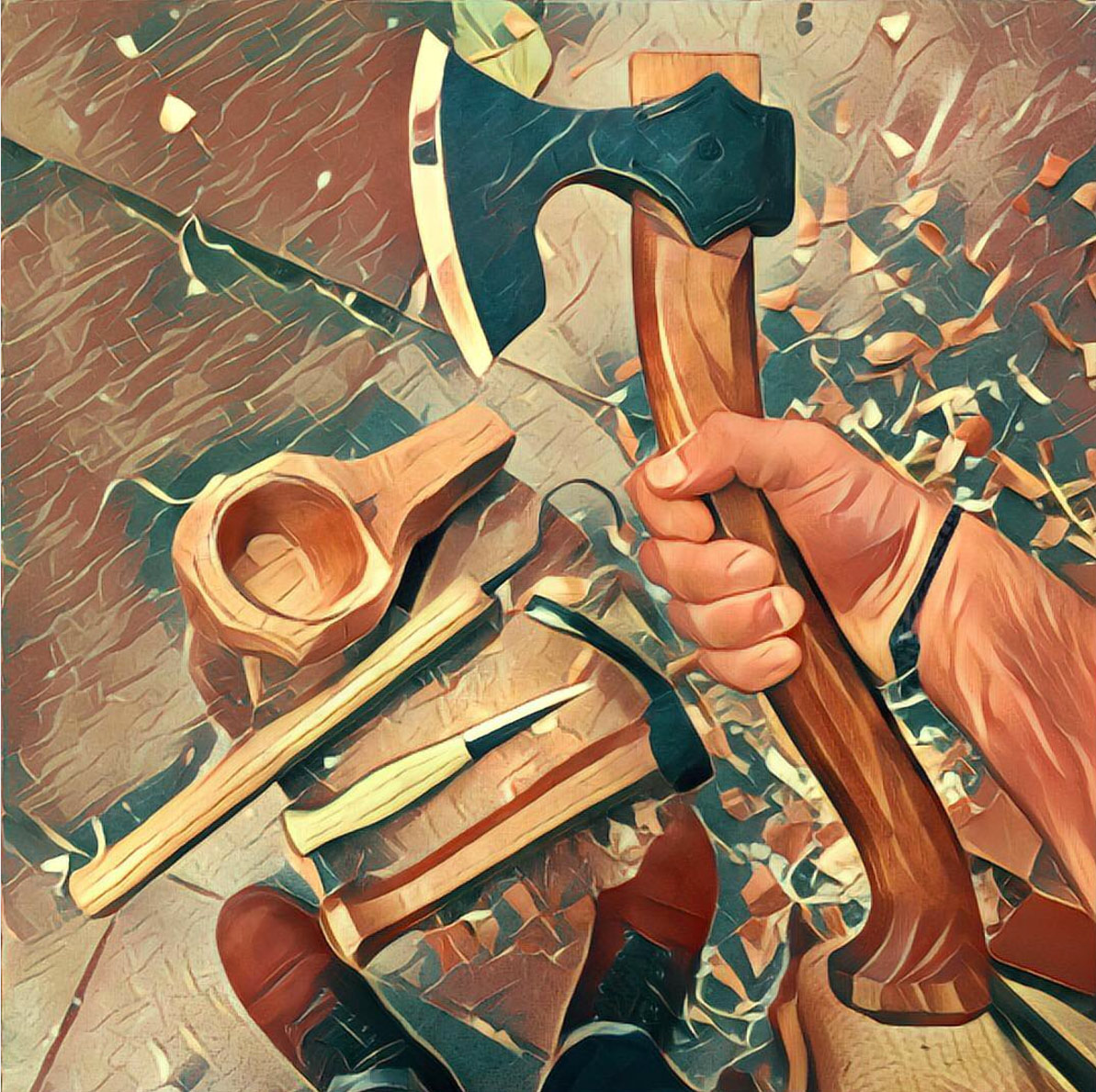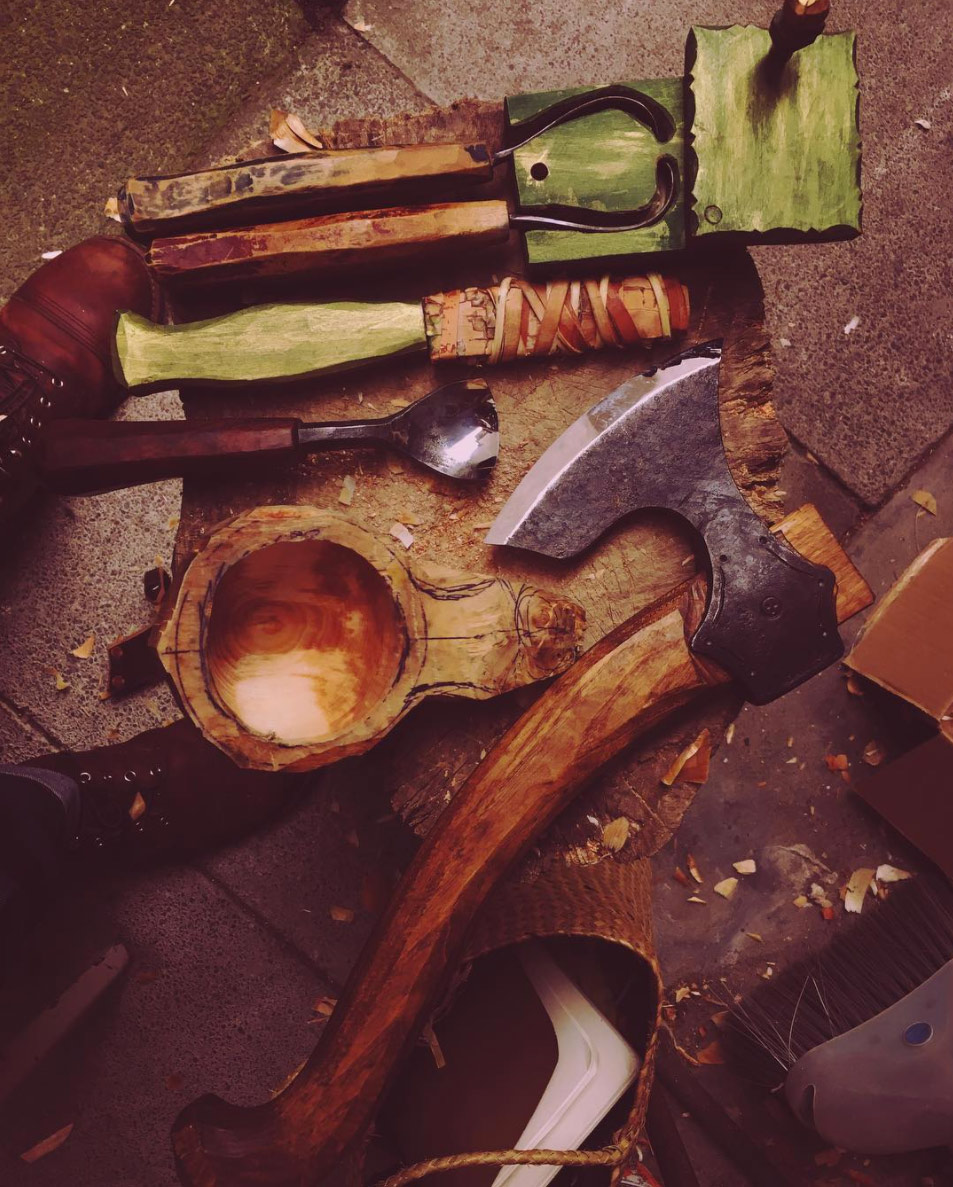FAQ
What is the best oil to care for Spoons and Kuksas?
People often ask which oils I use on my hand crafted woodenware. Different oils subtly change the colour of the spoon or kuksa. Some of my most commonly used food safe oils are —
Linseed Oil
Tung Oil
Many people love to leave them in their natural state, however most of my spoons and kuksas come with a hardened oiled surface.
To apply oil you can pour a small amount in your palm and hand rub the oil into the grains. If the wood instantly absorbs oil, apply a little more until the surface has a nice gloss. Wait a couple moments for that oil to be absorbed and wipe clean. You don't want to leave pools of oil because it will harden to a gummy surface. If you use a cloth to wipe clean, do not leave oily rags in a pile as they have the potential to combust.
How do I care for my Spoons and Kuksas?
Woodenware are simple to look after, but for washing instructions and general care info please read my guide.
What types of wood do you use?
I carefully hand select and harvest trees myself locally from forests in upstate New York. Depending on the trees I discover on my hikes, and what I hope to make, my choice of woods varies accordingly. The past couple years I have been traveling internationally numerous times throughout the year and locally source wood which has been great as I can offer unique wood for special carving collections from time to time.
When carving spoons I use a variety of green woods, freshly cut, including:
Black Cherry (Prunus Serotina)
White Birch (Betula Papyrifera)
Black Birch (Betula Lenta)
Black Walnut (Juglans Nigra)
Beech (Fagus grandifolia)
Sycamore (Platanus Occidentalis)
Red Maple (Acer Rubrum)
Aspen (Populus Tremuloides)
Buckthorn (Rahmnus)
Spice Bush (Lindera Benzoin)
What Tools do you prefer to use?
My basic tool kit for Spoon and Kuksa carving is similar, with addition of adze, gouge and compass for Kuksa work.
Slöyd knife / Straight knife
Hook Knife (Spoon Knife)
Carving Axe
Hand Saw for harvesting
Adze
Gouge
Compass
Spoon and Kuksa carving kit
All of my tools are hand forged and often custom made according to my unique specifications. I am planning to start having some tools made to offer in my shop by a select few of the world’s best blacksmiths and tool makers. I’ll be making updates about this shortly. I get a lot of questions about what tools to buy, and soon you’ll be able to find them in my shop.
Alex Yerks & Nic Westermann - TreeFest 2016
Wood vs Plastic in the Kitchen
There is much debate about the relative merits of wood vs plastic utensils in the kitchen, particularly surrounding the anti-bactierial nature of wood in chopping boards. Happily there's been some new scientific research conducted to bust the myths.
If a sharp knife is used to cut into the work surfaces after used plastic or wood has been contaminated with bacteria and cleaned manually, more bacteria are recovered from a used plastic surface than from a used wood surface.
— Dr Dean O. Cliver, Ph.D - PLASTIC AND WOODEN CUTTING BOARDS
Are wooden spoons ok for non-stick pans?
Absolutely!







